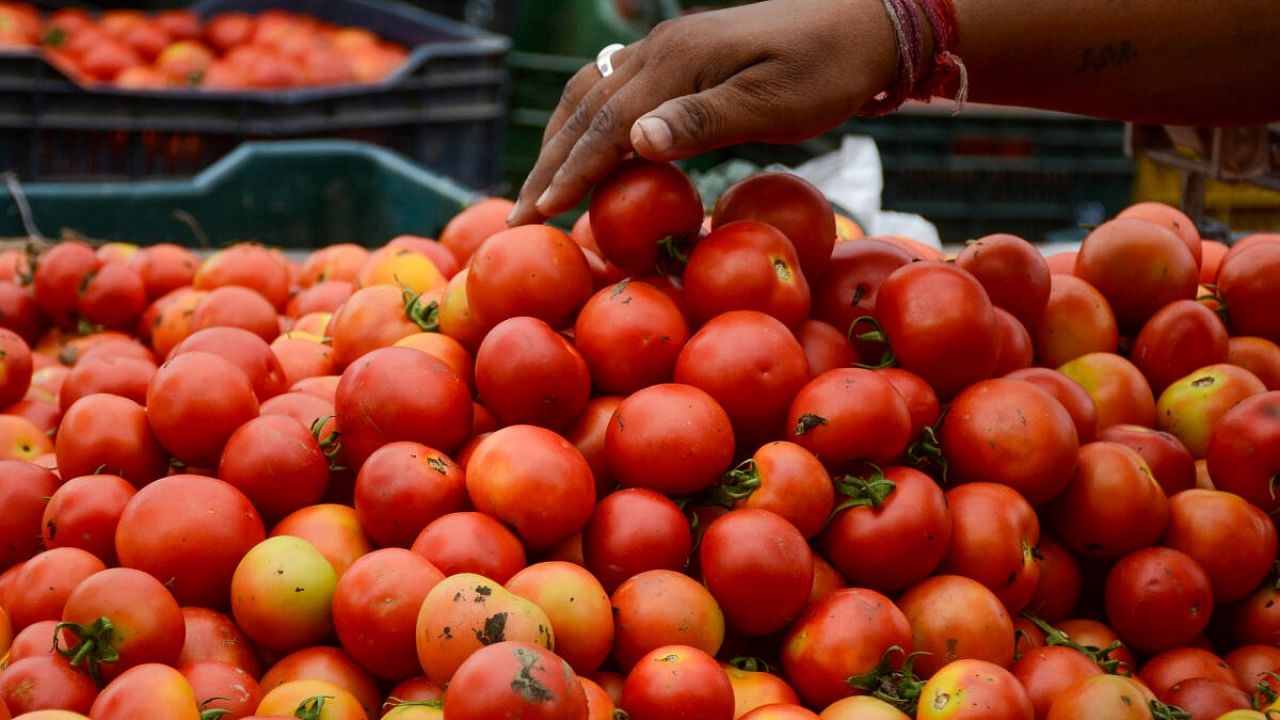
"It’s red, it’s hot, it’s spicy," reads the tagline of a commercial airline. It seems like an apt description for that humble fruit that has dethroned the acknowledged king of fruits, the mango. Yes, the tomato is red, and its current price is so hot and spicy that, apart from bringing tears to the eyes, it makes the stomach churn and the tongue yearn for its tangy, sweetish flavour. And just like passengers in the aircraft soar high above the earth, the prices of tomatoes too have soared beyond reach. Blame it on the lack of rain or an excess of it, or attacks by pests causing leaf curl disease; the shortfall in production is real, and so are high prices. Add to this the contribution of the hoarders and middlemen who are out to make a quick buck while this perishable commodity lasts!
As if defying the law of gravity, the prices of this kitchen staple have soared beyond the century mark, presently hovering around Rs 150 per kg. So much so that eateries have cut down on or totally eliminated its usage. Reports say that McDonald's has stopped using tomatoes in its servings both because of the price and the poor quality of what is available.
A farmer near Halebid near Hassan in Karnataka had the entire crop of ready-to-harvest tomatoes on his three-acre holding stolen overnight. A truck loaded with tomatoes going towards the wholesale market somewhere in Tamil Nadu was hijacked at knifepoint. Now comes the news that a vegetable seller in Varanasi has engaged two bouncers to guard his stock of tomatoes and keep away cantankerous customers who dare to haggle over the high prices. Samajwadi Party President Akhilesh Yadav has said, perhaps in jest, that tomatoes need Z-Plus security cover.
One cannot but wonder at all the uproar and commotion this otherwise non-descript fruit, used as a vegetable, is causing. There have been times, not too far back in the past, when the prices of tomatoes had crashed to such low levels that the farmers, instead of selling them below cost, simply threw the sacks of tomatoes on the roadsides or simply abandoned them on the plants in the field, leaving them to wither away or serve as fodder for cattle. John Updike said it succinctly: "Of plants, tomatoes seemed the most human—eager, fragile, and prone to rot".
Just like humans, tomato plants grow quite quickly, their weak stems need firm support just as humans need the support of others to thrive, and their lives are as fragile and short-lived as those of humans. But while they last, tomatoes lend juice and taste to man; can man claim the same for himself?